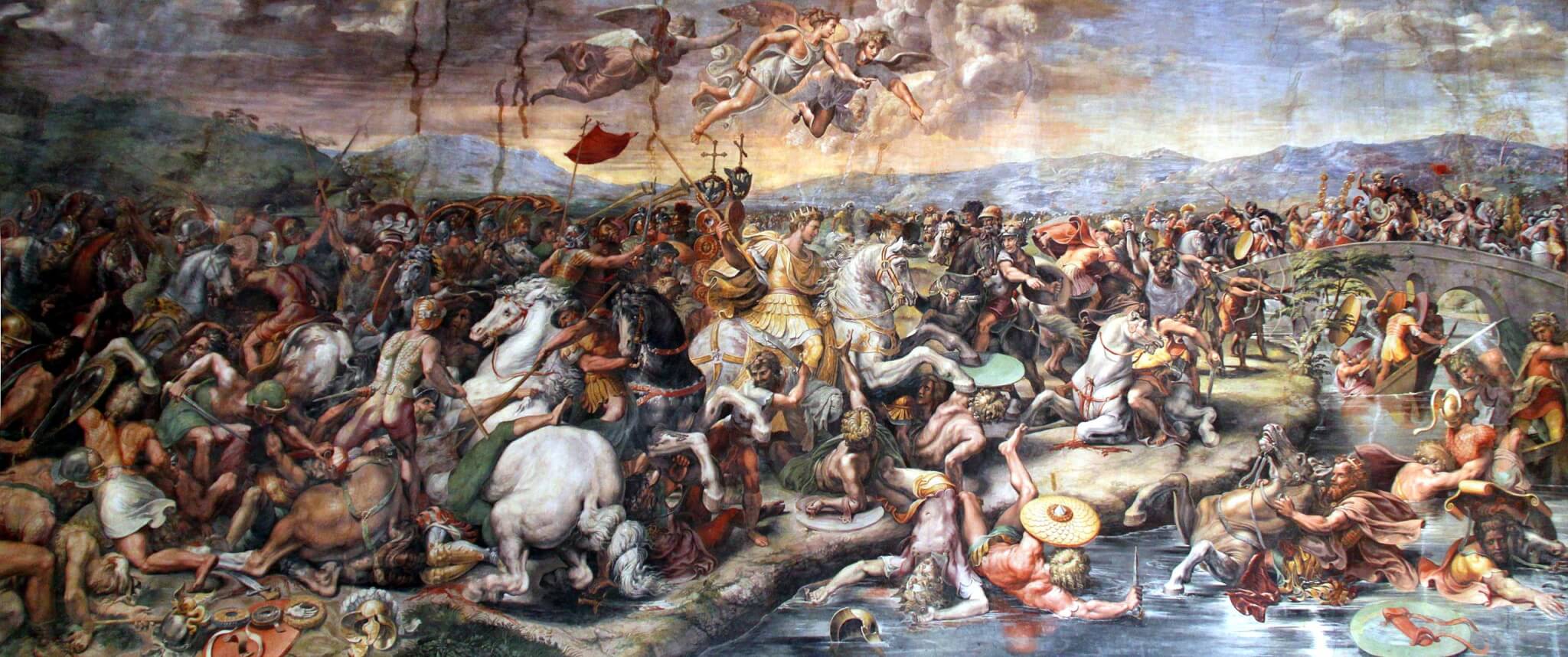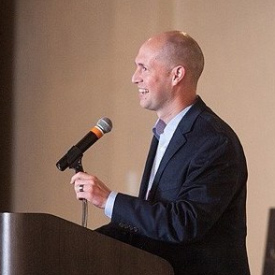Lives of the Saints in Two Minutes: St. Constantine

Constantine is a controversial figure in Church history. He won the power struggle that came after the death of Diocletian and, by 324, he ruled control the whole Roman Empire. He strengthened the absolute power of the emperor and stripped the senate of its authority. Additionally, Constantine built the military to 500,000 troops, and undertook huge building projects (palaces, amphitheaters), even though it put great financial strain on the empire.
At the same time, Christianity was becoming more organized and, therefore, able to spread effectively. Bishops oversaw large territories, caring for the churches within their territory. Because of this, many found the Church to be more stable than the Empire, which was struggling to maintain unity and protect its borders.
Constantine became the first Christian emperor. Before a crucial battle, he saw a vision of the cross with the message “In this sign, you will conquer.” His soldiers painted red crosses on their shields and the “Chi-Rho” symbol (the first two letters of “Christ” in Greek) was used as well.
After winning the battle, he made Christianity an accepted religion of the Empire and put an end to all official persecution of Christians. This was done in the Edict of Milan of 313. The Edict also granted the return of all confiscated Christian property, and rebuilt destroyed churches at government expense. When he was crowned as emperor, Constantine broke with the Roman tradition and refused to offer sacrifice to Jupiter upon being crowned. He freed Christians who had been imprisoned for their faith and made Sunday a legal holiday. The emperor even exempted church property from taxation, and appointed Christians to places of influence in the government.
When the heresies of Arius created a boiling conflict, Constantine called a Church council – the Nicene council (which led to the creation of the Nicene Creed). The emperor also attended the Council and contributed to the discussion, having arrived in his royal robes, with all of the attending bishops and church leaders standing at his arrival. He also used his power to appoint and dismiss bishops, even exiling men who did not follow his instructions (including Athanasius).
Constantine drives us to question the relationship between Church and State. Was it appropriate for the emperor to appoint bishops? Was it appropriate for Constantine to take part in a Church council?
Further, the life and rule of Constantine reminds us of a couple of basic truths. First, no human leader is perfect. Constantine made mistakes and did great things too, but no ruler is perfect.
Second, there is only one Savior. Constantine helped the Church, but also may have hindered the Church in some ways. We have endured a brutally controversial election season, but we cannot allow ourselve to lose perspective. We are people of the One, True King – and His name is not Constantine, or Trump, or Biden.

Brian Phillips
Dr. Brian Phillips serves as a pastor in Concord, NC, where he lives with his wife and their four children.










